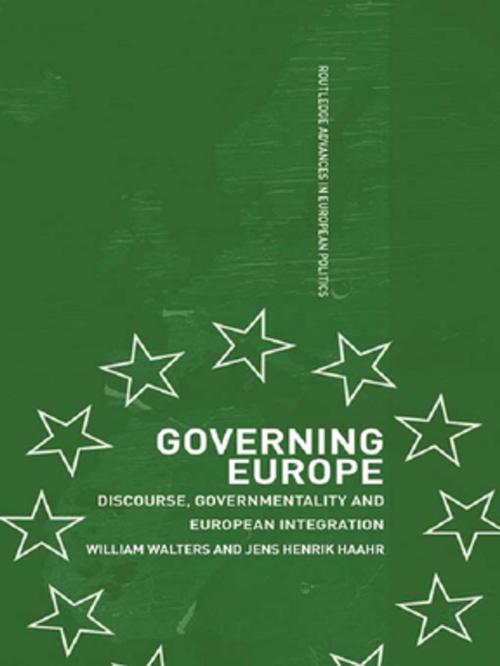Governing Europe
Discourse, Governmentality and European Integration
Nonfiction, Social & Cultural Studies, Political Science, International, Foreign Legal Systems, International Relations| Author: | Jens Henrik Haahr, William Walters | ISBN: | 9781134354931 |
| Publisher: | Taylor and Francis | Publication: | August 2, 2004 |
| Imprint: | Routledge | Language: | English |
| Author: | Jens Henrik Haahr, William Walters |
| ISBN: | 9781134354931 |
| Publisher: | Taylor and Francis |
| Publication: | August 2, 2004 |
| Imprint: | Routledge |
| Language: | English |
Governing Europe is the first book to systematically link Michel Foucault's hypotheses on power and 'governmentality' with the study of European integration. Through a series of empirical encounters that spans the fifty-year history of European integration, it explores both the diverse political dreams that have framed means and ends of integration and the political technologies that have made 'Europe' a calculable, administrable domain.
The book illustrates how a genealogy of European integration differs from conventional approaches. By suspending the assumption that we already know what/where Europe is, it opens a space for analysis where we can ask: how did Europe come to be governed as this and not that? The themes covered by this book include:
* the different constructions of Europe within discourses of modernization, democratization, insecurity and 'governance'
* the imprint of modernism, liberalism, ordoliberalism, neoliberalism and crime on the identity of the European Community/European Union
* the historical relationship between European government and specific technologies of power, technologies as diverse as planning, price control, transparency and benchmarking.
Governing Europe is the first book to systematically link Michel Foucault's hypotheses on power and 'governmentality' with the study of European integration. Through a series of empirical encounters that spans the fifty-year history of European integration, it explores both the diverse political dreams that have framed means and ends of integration and the political technologies that have made 'Europe' a calculable, administrable domain.
The book illustrates how a genealogy of European integration differs from conventional approaches. By suspending the assumption that we already know what/where Europe is, it opens a space for analysis where we can ask: how did Europe come to be governed as this and not that? The themes covered by this book include:
* the different constructions of Europe within discourses of modernization, democratization, insecurity and 'governance'
* the imprint of modernism, liberalism, ordoliberalism, neoliberalism and crime on the identity of the European Community/European Union
* the historical relationship between European government and specific technologies of power, technologies as diverse as planning, price control, transparency and benchmarking.















